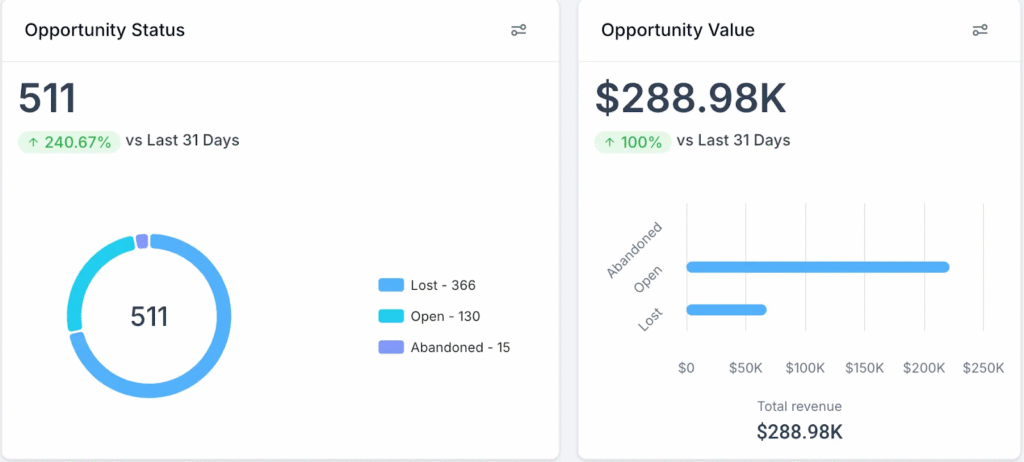In an industry where follow-ups make or break bookings and where client experience isn’t just a buzzword but the whole business model, the tools you use matter. Yet, many in-house marketers in the hospitality industry are still forcing generic systems to do a very specific job.
That’s where niche CRMs (Customer Relationship Management Systems) are stepping in and changing the game.
The Problem with a “One-Size-Fits-All” Software
If you’ve ever tried to make a general CRM work for a hospitality business, you know the drill. Endless customization that feels overwhelming. Manual workarounds. Fields that don’t make sense. Features you’ll never use. It’s like wearing a suit that technically fits, but you can’t breathe in it.
Generic CRMs—aka “horizontal SaaS”—are built to be flexible enough to target a wide audience across industries. That’s great for selling widgets. Not so great when you’re trying to convert a wedding inquiry or track room bookings.
And the truth is, these workarounds aren’t just inconvenient. They’re costing you leads, time, and revenue.
Why Niche CRMs Often Work Best
Vertical CRMs (those built specifically for one industry) offer something most tools can’t: they already understand how you work.
For hospitality teams, that means:
- Automated follow-ups after a tour or inquiry
- Built-in workflows for proposals, contracts, and payments
- Easy-to-read dashboards that show booking trends and top lead sources
- Seamless integrations with calendars, e-signature tools, and emails
You don’t need to force a fit. The fit is the feature.
Let’s look at an example: NurturePro, a CRM built specifically for wedding venues. It helps teams track inquiries, automate lead communication, manage bookings, and stay organized, without relying on five different platforms. Everything from email and text templates to reporting tools is designed with a specific workflow in mind.
Marketing Metrics That Matter
Another overlooked win? Better marketing data. Most CRM and generic marketing tools focus on things like how many people opened your emails or how fast a lead moves through the sales process. But hospitality teams need more than that.
They want to know:
- Where their best leads are coming from
- Which follow-ups turn into bookings
- How inquiry volume changes throughout the year
- Where potential clients tend to drop off
Niche CRMs bake those metrics into the experience. You’re not piecing together half-truths from six platforms. You’re seeing real insights tied directly to your booking flow, which means you can optimize campaigns, adjust your outreach, and scale your digital marketing with confidence.
Tracking the Customer Experience from Beginning to End
In hospitality, the guest experience starts long before someone walks through your doors. It can begin with the inquiry email, the response time, the tone of communication, and how smooth the booking process feels.
When your backend system is clunky, clients feel it. When it’s seamless? They remember that, too.
A niche CRM doesn’t just help your team—it helps your clients. By streamlining communication and creating a consistent process, you’re giving potential guests the kind of experience that makes them say “yes” faster—and rave about it later.
What to Look for in a Hospitality CRM
If you’re in the market for a CRM that works for hospitality, look for these features:
- Lead tracking with automated follow-ups
- Custom pipelines built around bookings, not just sales
- Task reminders for tours, proposals, and final payments
- Email templates tailored to events or guest communication
- Reporting that reflects real-life milestones (inquiries to bookings, booking trends by month, etc.)
- Seamless integration with your email, calendar, and e-signature tools
If your CRM feels like more work than help, it’s probably not built for you. A niche system can change that.
Vertical Tools = Competitive Edge
Hospitality is a high-touch industry with high expectations. Clients expect personalization, quick responses, and seamless experiences. If your tools can’t keep up, you’re losing more than time—you’re losing trust.
Switching to a niche CRM doesn’t just make your life easier. It gives you a competitive edge. When your systems are built for your exact workflow, your team moves faster, your communication improves, and your marketing becomes more strategic.
And the best part? These platforms are built for businesses like yours, not Fortune 500 corporations with massive teams and IT departments. They’re accessible, effective, and designed to help small teams do big things.
Author Bio: Gabbi Rubino is a client success manager at Snowmad Digital, where she helps wedding venues and event professionals. She also contributes to the product development and strategy at NurturePro, a CRM built specifically for wedding venues.






